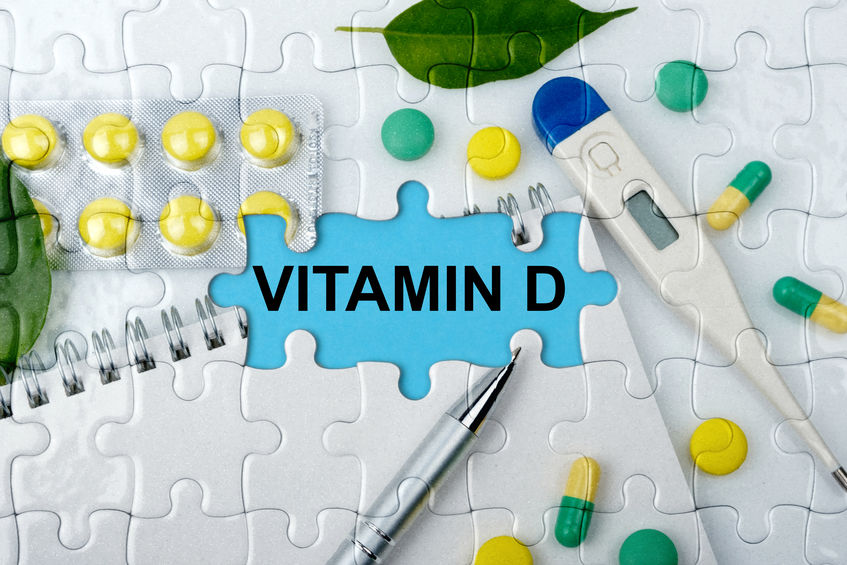Vitamin D has been a “hot topic” recently— especially due to COVID. Studies have shown that having low serum Vitamin D levels can increase susceptibility to upper respiratory infections while supplementing may help boost the body’s ability to fight off infection as well as reduce the inflammatory response [1].
What exactly is Vitamin D and what else is it beneficial for?
Vitamin D is a prohormone and fat-soluble vitamin which means that it is best absorbed when consumed with fats in the diet and it is stored in the liver as well as in the body’s fatty tissue. It helps our bodies better absorb calcium and phosphorus thus supporting healthy bone maintenance [2]. Research supports vitamin D’s role in boosting immune function to better help our bodies fight off viruses like the flu as well as reduce the severity of certain chronic diseases. [3,4] According to Harvard T.H. Chan School of Public Health, “laboratory studies show that vitamin D can reduce cancer cell growth, help control infections and reduce inflammation. Many of the body’s organs and tissues have receptors for vitamin D, which suggest important roles beyond bone health, and scientists are actively investigating other possible functions [5].”
Now, let’s dive into the types of Vitamin D:
You’ve probably heard that Vitamin D can be produced by our body when we’re exposed to sunlight, particularly UVB rays. However, increased time indoors and use of sunscreen can result in many individuals being deficient. In fact, correctly applied sunscreen can reduce vitamin D absorption by more than 90% [5]. Sunscreen is extremely important for protection against skin cancer so don’t go without it! Instead, read on to find other sources. The type of vitamin D that we naturally produce through sun exposure is Vitamin D3 (cholecalciferol). Vitamin D3 can also be found in animal food sources such as: egg yolks, beef liver, cod liver oil, butter, and fatty fish as well as in dietary supplements.
Vitamin D2 (ergocalciferol or “pre-vitamin D”) is artificially manufactured, not animal derived, making it suitable for vegans. Vitamin D2 is found in fortified foods such as cereal, orange juice, and milk because it is generally less expensive. It can also be found in dietary supplements.
Some experts view vitamin D3 as the superior form for supplementation based on a meta-analysis of randomized controlled trials that compared the effects of vitamin D2 and D3 supplements on blood levels. Vitamin D3 supplements were found to raise blood concentrations of the vitamin more than D2 and sustained those levels for a longer period of time [5].
Though both forms of vitamin D can be found in food sources, it is very difficult to get sufficient doses through food alone. For most individuals, the best way to get what you need is through supplementation [5]. Talk with your doctor to find out whether or not supplementation is appropriate and also to find out the dosage best suited for you!
[1] Harvard Health Publishing. (2021, April 22). Treatments for COVID-19. Harvard Health. https://www.health.harvard.edu/diseases-and-conditions/treatments-for-covid-19
[2] Dunne, S., & Bell PhD, RD, J. A. (2014, July). Vitamin D’s Role in Health — Deterministic or Indeterminate? https://www.todaysdietitian.com/newarchives/070114p48.shtml
[3] Urashima, M., Segawa, T., Okazaki, M., Kurihara, M., Wada, Y., & Ida, H. (2010). Randomized trial of vitamin D supplementation to prevent seasonal influenza A in schoolchildren. The American Journal of Clinical Nutrition, 91(5), 1255–1260. https://doi.org/10.3945/ajcn.2009.29094
[4] Dunne MS, RD, S. (2016, December). CPE Monthly: Vitamin D – Today’s Dietitian Magazine. https://www.todaysdietitian.com/newarchives/1216p48.shtml
[5] Harvard Health. (2021, March 3). Vitamin D. The Nutrition Source. https://www.hsph.harvard.edu/nutritionsource/vitamin-d/












